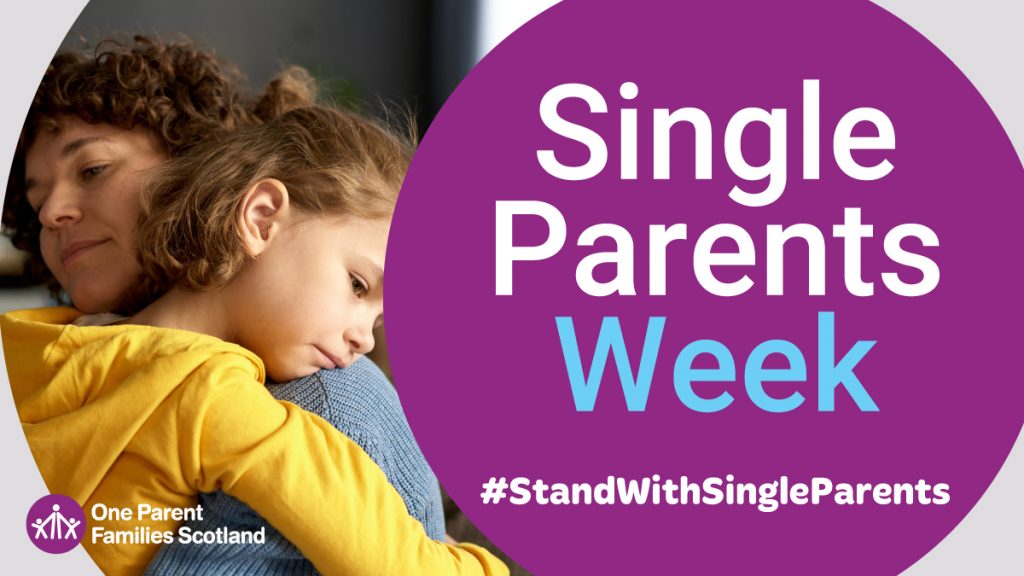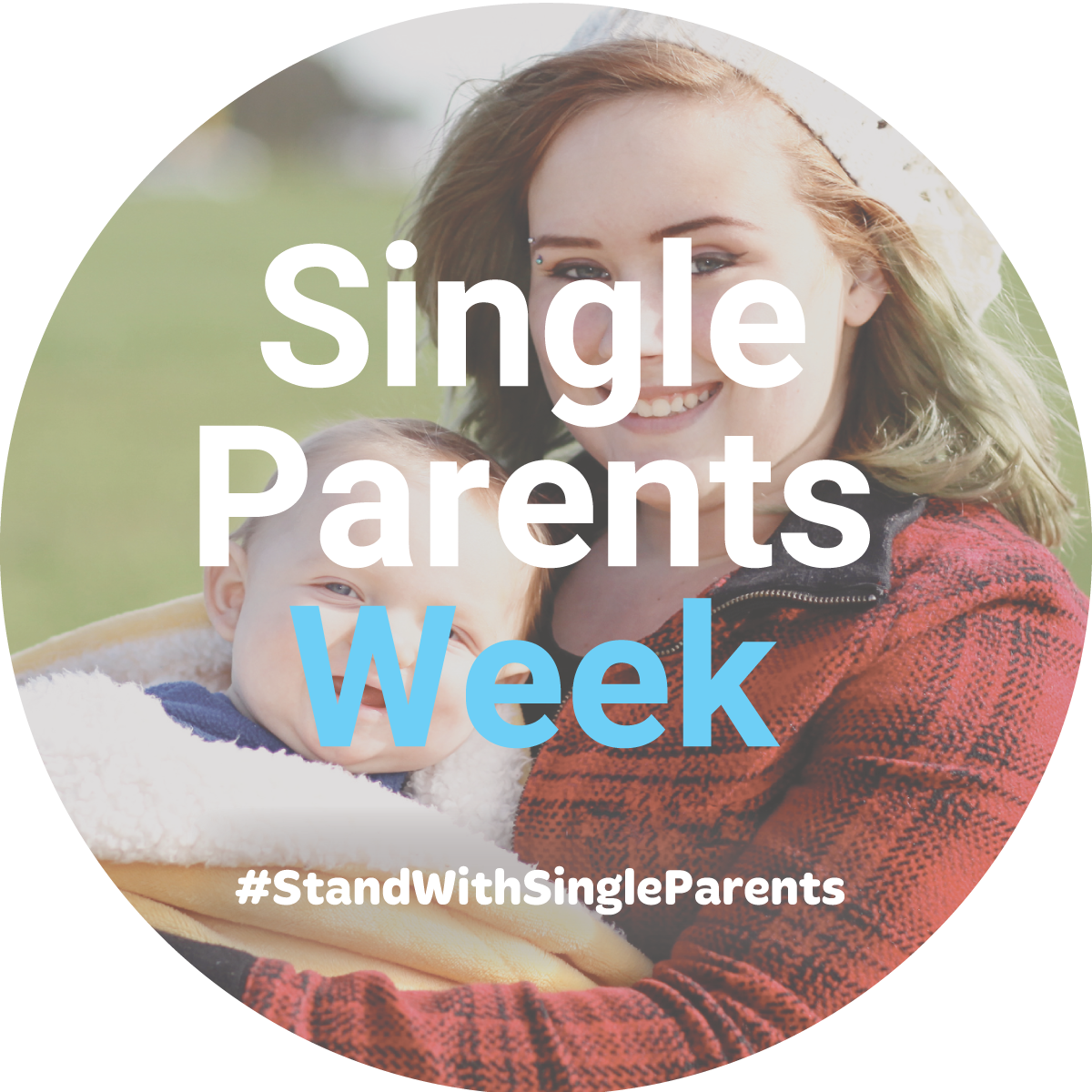Single Parents Week 2023: A celebration and a call to action

21/03/2023
In this blog, One Parent Families Scotland (OPFS) Chief Executive Satwat Rehman explains why this week of celebration and reflection is so important.
At OPFS, every day is Single Parents Day. But all too often, single parent families are forgotten about or misunderstood in wider society. That’s why, each year on March 21st, we join with charities around the UK and Ireland to shout out about how amazing and diverse single parents are – and invite parents and supporters to join in with the celebrations.
As an organisation which seeks to improve the lives of single parent families, we spend a lot of time talking about the challenges they face. Although 1 in 4 families with children are now headed by single parents (around 90% of whom are women), structures like work and childcare have not adapted to this reality. This means single parents and their children are left at a disadvantage and face higher rates of poverty as a result.
While it’s important to evidence the need for systemic change, we think it’s equally important to acknowledge the positives of single parenting and the wonderful job that single parents are doing for their children.
- Satwat Rehman, Chief Executive, OPFS
Celebrating joy
We’d love your help in celebrating single parents by sharing the message that single parents are valued, appreciated.

Single Parent Joy
Single Parents Day is an opportunity to do just that, and this year the theme is #SingleParentJoy: an invitation to single parents, their children, family, and friends to share stories and messages about the joy experienced by single parent families. Alongside this, supporters can share messages of why they #StandWithSingleParents.
The aim behind the theme of Single Parent Joy is to flip the script and put the focus squarely on celebration.
This is important for a few reasons:
- We know single parent face a lot of pressures, which can have an impact on mental wellbeing.
We think taking a moment to celebrate (and be celebrated) is necessary and well-deserved. This year we’re organising events and picnics for parents supported by our local services where they and their children can connect with other families.
- Single parent families still face stigma based on false assumptions and stereotypes.
A survey of 1083 single parents across the UK by the Single Parent Rights campaign found that 80% felt they had experienced discrimination based on being a single parent. In our recent research with single parents, ‘Living Without a Lifeline’, parents told us that ensuring single parent families are valued and treated equally was one of the top three issues they wanted us to campaign on.
We think putting the spotlight on what’s great about single parents and single parent families is an essential part of tackling stigma and discrimination.
- Often, policy decisions which harm single parent families, or at the very least fail to support them, have been justified on the basis of false stereotypes.
For example, increasingly stricter work-search requirements and cuts in benefits for single parents from the UK Government have been described as encouraging people to work – as though single parents are choosing to rely on social security because it’s easier.
We think people need to understand the reality of single parents’ lives, and everything they do which deserves to be celebrated, in order to appreciate that the challenges they face are not their ‘choice’, but a combination of circumstance and political decisions.
For us, celebrating single parents, challenging stigma, and pushing for fairer policy-making all go hand in hand.
As Audre Lorde once wrote: “Caring for myself is not self-indulgence, it is self-preservation, and that is an act of political warfare”. When we ask single parents to celebrate themselves and the joy of single parenting, we do so in the knowledge that, in a society which seeks, in so many ways, to wear them down, this is a distinctly political and powerful act.
Single Parents Week
This year, we decided one day simply wasn’t enough, so we’re celebrating Single Parents Week from 21st to 24th March.
In acknowledgement of the fact that there are significant inequalities facing single parents which need to be addressed if we truly want to celebrate and value single parents, we and our partners around the UK and Ireland have decide to focus on a series of themes:
- Tuesday 21 March – Single Parents Day: a celebration of #SingleParentJoy.
- Wednesday 22 March – Cost-of-living crisis.
- Thursday 23 March – Childcare.
- Friday 24 March – Disability in single parent families.
There are too many issues impacting on single parents to fit them all into one week, so we have chosen these topics because of their urgency to many of the families we support.
Cost-of-living crisis
The cost-of-living crisis has pushed low-income single parent families, many of whom were already struggling, to the brink.
Our Living Without a Lifeline report, published in September 2022, found that many single parents were finding it extremely difficult or impossible to afford essential costs like electricity (61.5%), gas (58.1%) and food (43.7%). More than one in five said they could no longer afford to buy clothes (21.2%), pay for travel (22.3%) or childcare (21.2%) at all.
Childcare
Whilst there is rightly significant focus on the immediate cost-of-living crisis, it’s important not to lose sight of the changes which are needed to reduce poverty amongst single parent families in the long-term.
Investing in affordable, accessible, and flexible childcare is essential to meeting the Scottish Government’s child poverty targets. Only by developing a childcare infrastructure which meets the needs of single parent families will single parents be able to have equal opportunities to enter and progress in employment.
Disability in single parent families
National statistics find that 40% of children in single parent families in Scotland have a disabled parent or child in the household, and research by Joseph Rowntree Foundation finds that nearly half of all people in poverty in the UK are either disabled or live with a disabled person.
As such, it’s not surprising that issues linked to disability and additional support needs (ASN) are amongst the most commonly raised by the single parents we work with. Parents tell us that their or their child’s disability has a significant impact on their access to employment, childcare and activities for their children, as well as additional costs associated with meeting their own and their children’s specific needs.
This underlines the importance of understanding the impact that different, intersecting inequalities can have on single parents’ experiences.
***
By focusing on these three topics alongside #SingleParentJoy, we aim to highlight some of actions all that levels of government could – and should – take to improve the lives of single parent families.
Although it is certainly difficult to view these inequalities within the context of celebration, we hope that by shining a light on these challenges we can bring greater emphasis to why Single Parents Week is so necessary and inspire people across the country to #StandWithSingleParents – this week and every week.